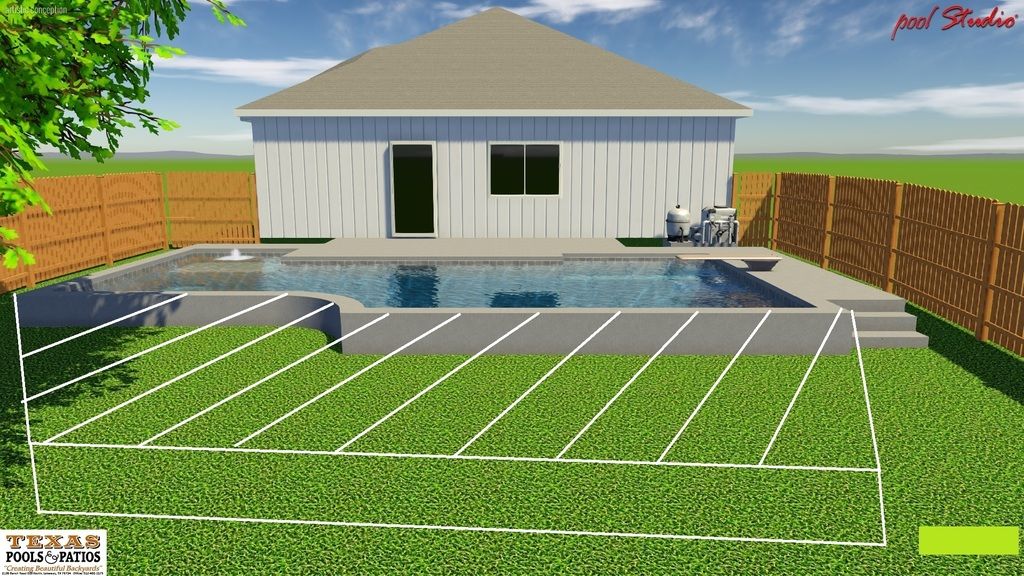I could use some suggestions. Once my pool is finished, I will have very little deck area, due to maxing out the CoA impervious coverage limit. What I want to do is build a larger deck out from the edge of the pool deck towards the back fence. I'm betting it will need to be a wood deck, since I can't do a concrete deck myself, and any reliable builder is going to want a CoA permit, which they won't grant.
Is it possible to do this on my own or do I just need to start selling blood to pay someone? I have to have a deck, not only for the extras space, but I need somewhere to mount the slide.
The deck would be built out from the tree side pool deck.

Is it possible to do this on my own or do I just need to start selling blood to pay someone? I have to have a deck, not only for the extras space, but I need somewhere to mount the slide.
The deck would be built out from the tree side pool deck.




